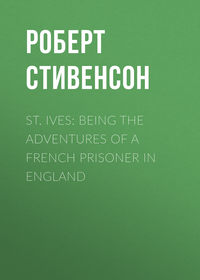Sadece Litres'te okuyun
Kitap dosya olarak indirilemez ancak uygulamamız üzerinden veya online olarak web sitemizden okunabilir.
Kitabı oku: «St. Ives: Being the Adventures of a French Prisoner in England», sayfa 6
Bir şeyler ters gitti, lütfen daha sonra tekrar deneyin
5,0
1 puan
Türler ve etiketler
Yaş sınırı:
12+Litres'teki yayın tarihi:
30 eylül 2017Hacim:
350 s. 1 illüstrasyonTelif hakkı:
Public Domain